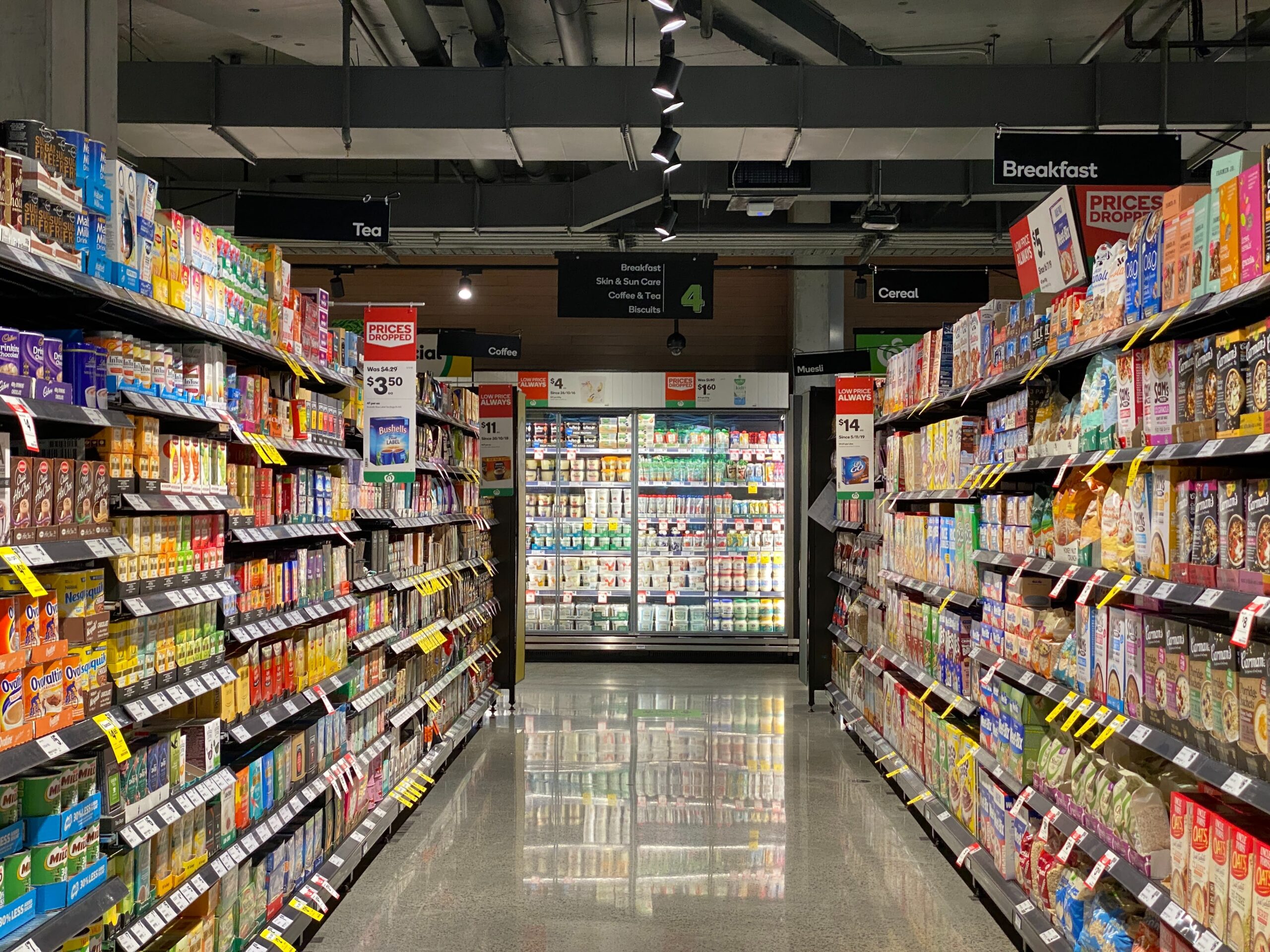Understanding the global FMCG market industry
What is FMCG?
The Fast Moving Consumer Goods (FMCGs), also known as Consumer Packaged Goods (CPG), refers to a wide range of regularly purchased consumer products, characterised by its rapid turn-over and relatively low-cost.
FMCG products are in high demand due to being consumed and replaced frequently. As such, the products have a short shelf life of three years or less. Although the profit margins of these products are low, their high sales volumes generate significant cumulative earnings for retailers.
This can be consumer goods commonly found in households which include daily needs like meals, beverages, and personal care products, and accounts for most non-durable spending in households.
The industry is highly competitive, as FMCG businesses constantly have to innovate according to consumer preferences and industry trends. Market research comes into the equation as companies have to ensure updated market information to make the best business decisions.
Key Takeaways
- FMCG refers to fast moving consumer goods
- Segments of the industry include food and beverages, personal care and beauty, household care, amongst others
- Current FMCG trends include sustainability, health and wellness, and e-commerce digitalisation
- Market research is essential for FMCG companies to keep up with ever-changing consumer and industry trends
Segments of the FMCG Industry
The FMCG is a wide industry that encompasses a large variety of products. Here are some of the segments that make up the FMCG industry:
- Food and Beverages: Snacks, dairy products, beverages, and packaged foods.
- Personal Care and Beauty: Toiletries, cosmetics, skincare, hair care, and personal hygiene items.
- Home and Household Care: Cleaning products, detergents, air fresheners, and household essentials.
- Electronics and Appliances: Fast-moving electronic goods and small appliances.
- Baby and Child Care: Baby food, diapers, and childcare items.
- Pet Care: Pet food, grooming products, and pet care items.
- Tobacco and Tobacco-Related Products: Cigarettes, cigars, and tobacco-related items.
Biggest FMCG Brands in the World
- Nestle
- PepsiCo
- Unilever
3 Key Trends in FMCG
1. Sustainability
FMCG companies account for a significant amount of the global emissions. According to the World Economic Forum, food and FMCG industries together produce more than one-third of global emissions.
As consumers are becoming increasingly environmentally conscious, millennials are showing greater inclination towards adopting more environmentally friendly practices. Based on research insights, this shift is driving brand choice, with 78% of consumers considering brands offering clean, sustainable, recycling-friendly, or natural ingredients. Nearly 57% of consumers are willing to change their purchasing habits to reduce environmental impact. As such, their purchases of FMCG products are increasingly influenced by thoughtful considerations, leading them to adopt more cleaner and environmentally friendly alternatives.
Additionally, carbon reporting legislation is expanding worldwide, requiring more fast-moving consumer goods (FMCG) businesses to report their climate impacts. This necessitates FMCG companies to assess and report their carbon footprint, leading to greater transparency in their operations. Such transparency can in turn influence consumer perceptions, as environmentally conscious consumers may favour companies with lower carbon footprints.
This hasn’t gone unnoticed by large FMCG companies as they race to embrace sustainability and eco-friendly practices, in particular sustainable product packaging. For example, brands like L’Oréal and Unilever have made commitments to fully transition to recyclable packaging by 2025. In order to stay ahead of reporting legislations and consumer trends, FMCG companies need to accelerate innovation to incorporate more sustainable practices in their business operations.
2. Health & Wellness
With a growing emphasis on health, consumers are becoming increasingly conscious of their well-being. According to a 2021 NielsenIQ global health and wellness report, more than half (54%) of consumers across Asia Pacific markets, including Australia, China, Indonesia, India, Singapore, South Korea, and Thailand, are actively prioritising health and wellness. This suggests a drive in demand for healthier and more nutritious products across FMCG segments. As consumers prioritise products that support their well-being, FMCG companies must innovate to meet these changing preferences, leading to the development of new products and reformulation of existing ones.
3. Rising E-commerce Digitalisation
The surge in e-commerce over the years and spurred by the COVID-19 has significantly propelled the FMCG market forward. According to research, online sales of FMCG products are expected to reach $1 trillion by 2023 and account for 11% of FMCG sales by 2030. The rise in e-commerce has opened up new markets and opportunities for FMCG companies to tap into new consumer segments and geographical areas previously inaccessible through traditional retail channels. With increased accessibility to a diverse range of products, consumers can conveniently shop online for groceries, household essentials, and personal care items. As such, this trend has prompted FMCG companies to invest heavily in digital marketing and online presence optimisation, enhancing brand visibility and customer engagement in the digital sphere.
Challenges faced in the FMCG Market
Competition within the FMCG sector is intense, with products often similar in function and differentiated primarily by brand and emotional appeal. FMCG retailers typically operate on thin profit margins, relying on mass markets, scale, and widespread distribution for success. Establishing brand advantages and awareness is crucial for defending market share and fostering customer loyalty.
As consumer trends and competitors constantly evolve, staying abreast of consumer habits, preferences, and perceptions is paramount for companies operating in the FMCG market to remain relevant and capture market share. Successful product launches hinge on comprehensive market research, enabling companies to understand and prepare accordingly. Investing in insights not only enhances ROI but also provides invaluable understanding of consumer behaviour, market dynamics, and brand positioning within the category.
What is the importance of FMCG in the economy?
The FMCG market is a major contributor to the global economy. It enables the employment of millions of people and generates significant revenue.
Market Research on FMCG
In the ever-evolving and competitive landscape of the FMCG industry, companies must innovate continuously and adopt new strategies. As seen by Coca-Cola’s release of Coke Zero Sugar to appeal to health-conscious consumers. This requires a keen understanding of consumer behaviour, market trends, and emerging opportunities. As such, a comprehensive market research serves as the compass guiding FMCG companies through the dynamic terrain of consumer preferences and competitive pressures. This includes an in-depth competitive analysis to understand strengths and weaknesses of rivals, identify the gaps and emerging opportunities in the market. This will empower companies to refine their strategies and effectively differentiate themselves in the market.
When it comes to FMCG market research, GLOBAL ANGLE stands out as a valuable partner. We specialise in providing tailored methodologies for the FMCG industry, offering comprehensive insights into consumer behaviour, market trends, and competition. Gain a competitive advantage with practical insights, strategic recommendations, and a global understanding of market dynamics and opportunities. Consulting Global Angle empowers FMCG companies through fostering growth and success in the global FMCG industry.










